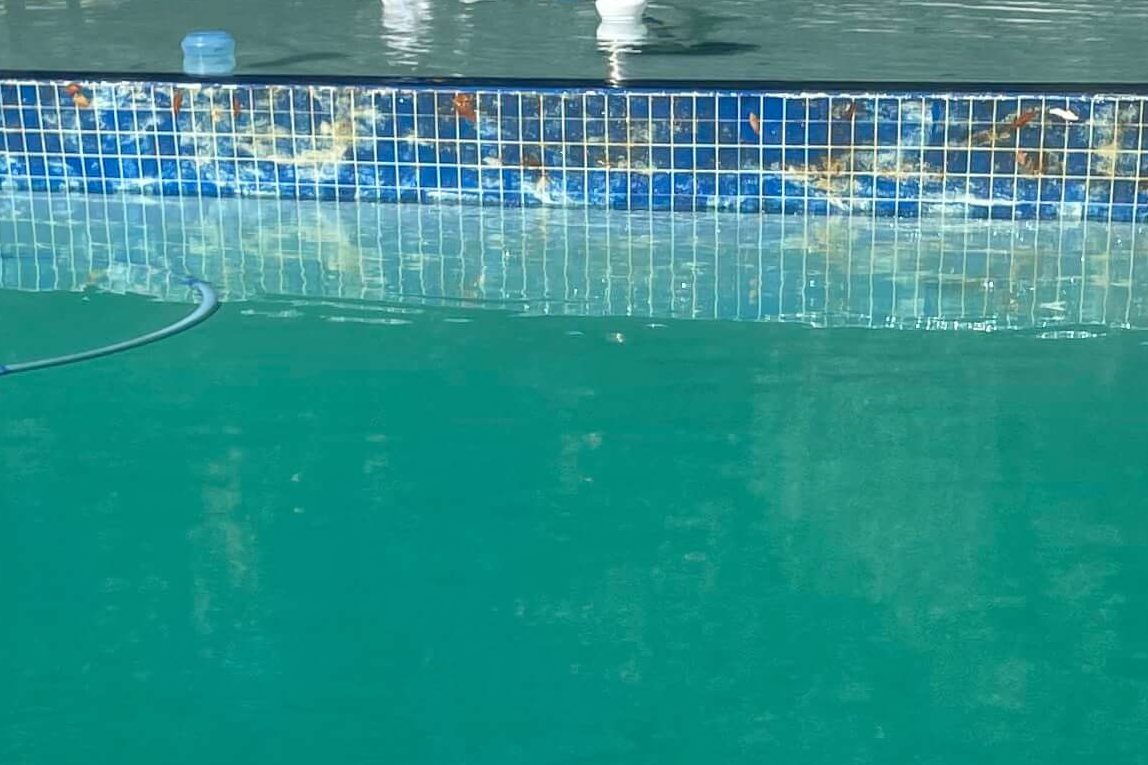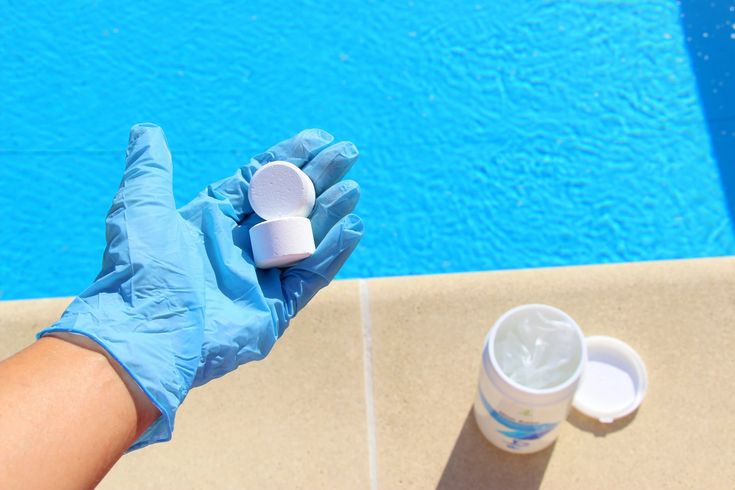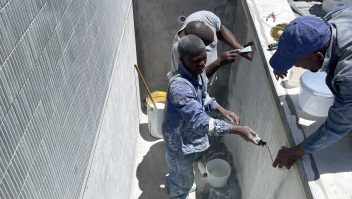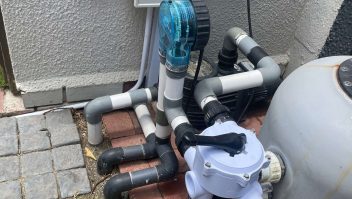Hard water in swimming pools is a common issue in many parts of South Africa, particularly in areas with naturally high calcium and magnesium content in the water supply. Left untreated, hard water can cause significant problems for your pool’s surface, plumbing, and equipment. At Pools Reno, we provide expert water testing and tailored treatments to help pool owners effectively manage and prevent hard water damage.
What Is Hard Water in a Pool?

Hard water refers to water with high levels of dissolved minerals, primarily calcium and magnesium. When calcium hardness exceeds 400 ppm (parts per million), it can result in:
- White scaling on pool tiles, surfaces, and fittings
- Cloudy or milky pool water
- Reduced effectiveness of pool chemicals
- Damage to pool heaters, pumps, and filters
Signs Your Pool Has Hard Water
- White chalky deposits on pool tiles or metal fixtures
- Cloudy water that remains unclear after filtering
- Reduced chlorine effectiveness and rising pH levels
- Premature wear on pool heating elements or filtration systems
How to Fix Hard Water in Swimming Pools

1. Test Calcium Hardness Regularly
Use a reliable test kit to measure calcium hardness. The ideal range is 200–400 ppm.
2. Partially Drain and Refill with Soft Water
This is the most direct solution:
- Drain 20–50% of the water
- Refill with municipal or filtered water
- Retest and adjust as needed
3. Use a Calcium Reducer or Scale Inhibitor
These chemical additives help reduce scale formation and suspend excess calcium in the water, although they do not remove it.
4. Install a Pre-Filtration System
Attach a calcium-removal filter to your hose when refilling the pool to limit calcium entering the water.
5. Brush and Vacuum Pool Surfaces Frequently
Prevents calcium deposits from solidifying and becoming harder to remove.
6. Install a Reverse Osmosis Filtration System (Advanced Option)
Though expensive, reverse osmosis effectively removes minerals, including calcium, from pool water. It’s ideal for high-end residential or commercial pools in extremely hard water regions.
Preventing Hard Water Build-Up

- Use calcium-free chlorine and pool products
- Top up your pool with softened water if available
- Maintain pH between 7.2–7.6 and alkalinity at 80–120 ppm
- Schedule regular pool water tests and professional inspections
Frequently Asked Questions (FAQ) – Hard Water in Pools
Q: What causes hard water in swimming pools?
A: Hard water typically comes from a high-mineral source such as borehole water or municipal supplies rich in calcium and magnesium.
Q: Can hard water damage my pool?
A: Yes. Over time, hard water can cause scale build-up, corrode equipment, reduce water clarity, and increase maintenance costs.
Q: How do I reduce calcium hardness in my pool water?
A: The most effective solution is a partial drain and refill using softer water. Alternatively, use calcium reducers or scale inhibitors.
Q: Is there a long-term solution for hard water?
A: Yes. Installing a reverse osmosis system or using a pool water pre-filter when topping up can significantly reduce calcium levels.
Q: Does hard water affect chlorine efficiency?
A: Yes. Hard water often raises the pH, making chlorine less effective and requiring more frequent chemical adjustments.
Q: What is the ideal calcium hardness for pools in South Africa?
A: Between 200–400 ppm. Below 150 ppm can lead to corrosion; above 400 ppm can cause scaling.
Q: How often should I test for calcium hardness?
A: Test monthly, and more frequently during dry, hot seasons or if topping up with borehole or untreated water.



